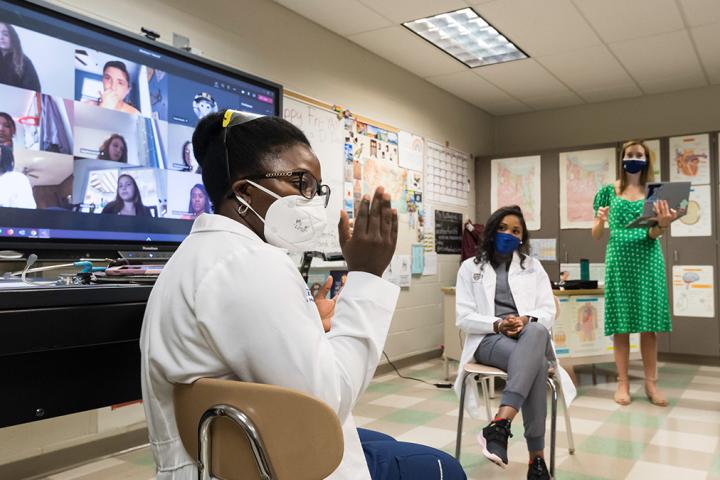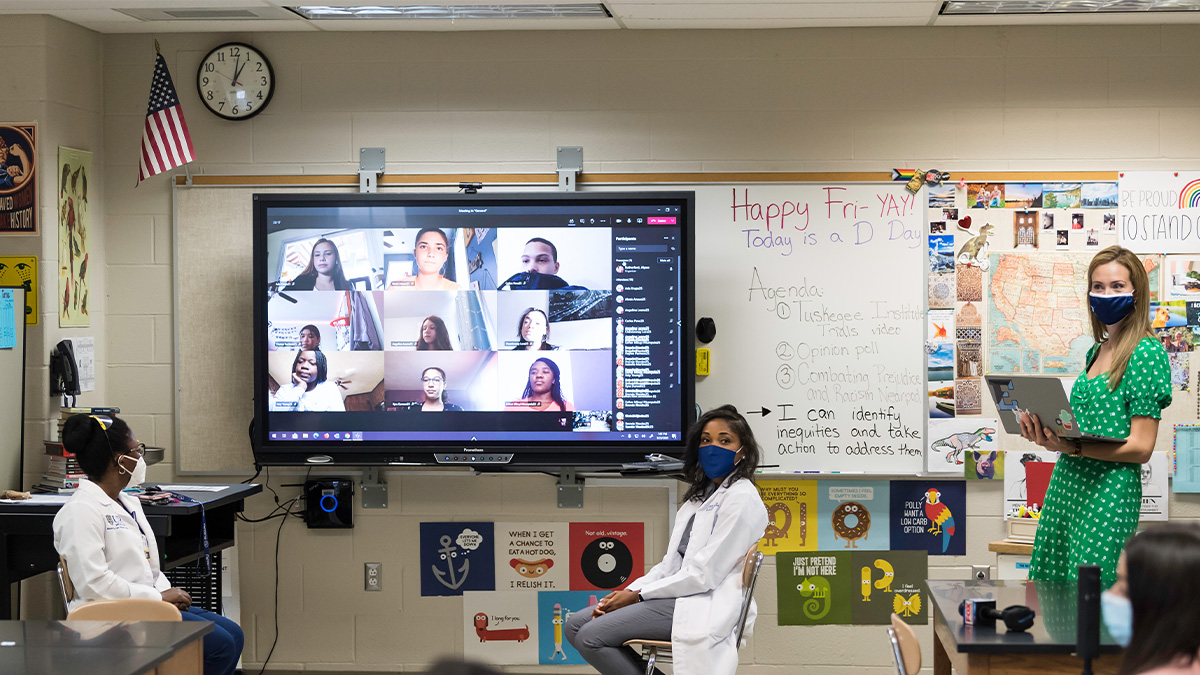
COVID Connects Us: Nurturing Novice Teachers’ Justice Science Teaching Identities
Research initiative
Quick facts
Director/PI: April Luehmann
Collaborators: University of Connecticut Naeg School of Education and University of Washington’s IslandWood Graduate Program in Education for Environment and Community
Funding: $1.5 million grant from the National Science Foundation Discovery Research PreK-12 (DRK-12) program
Related Projects: Get Real! Science
Overview
The project, titled “COVID Connects Us: Nurturing Novice Teachers’ Justice Science Teaching Identities,” addresses the urgency of fostering an appreciation for science, especially in communities of Color, while also nurturing students’ and their families’ understanding, importance and trustworthiness of science. Launched in July 2021, this three-year initiative implemented a collaborative COVID-19 unit, developed by April Luehmann in 2020 with input from teachers and doctoral students in Rochester, N.Y. The unit, aligned with the NGSS, aims to build students’ understanding of the science related to the pandemic.
The project addresses significant challenges in the context of the pandemic and social inequities spotlighted by the Black Lives Matter movement. Participants, both teachers and students, grapple with issues of racism, develop science literacy, utilize NGSS science practices, and collaborate with local doctors who serve as medical mentors. The culture-setting unit, as part of this project, aims to position youth as informed science advocates within their communities, contributing to efforts to slow the spread of the pandemic.
The project team will generate insights into transforming science education into a justice-centered, community-serving endeavor. Through the collection and analysis of teacher narratives, the impact of two core teacher supports — the culture-setting unit on the science of COVID and teachers’ engagement in a network of professional learning communities — are being studied, focusing on participating teachers’ professional identity development as practitioners of JuST practice.

